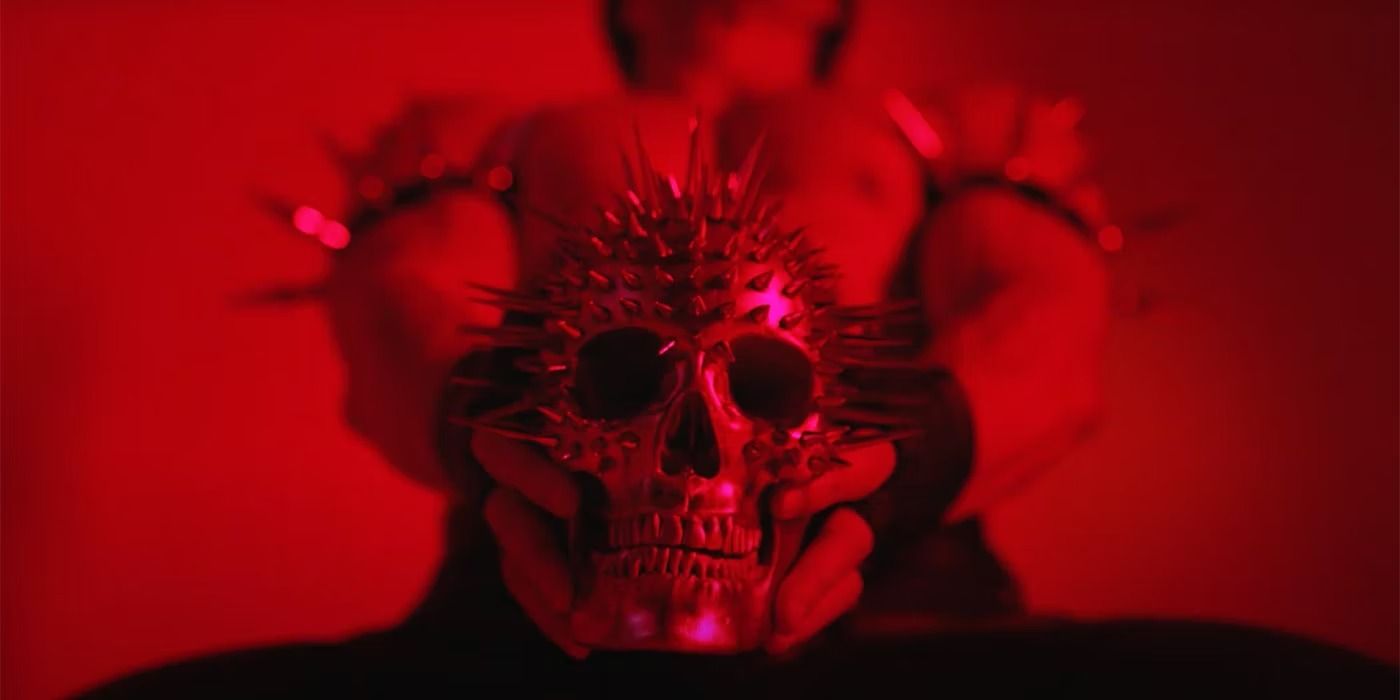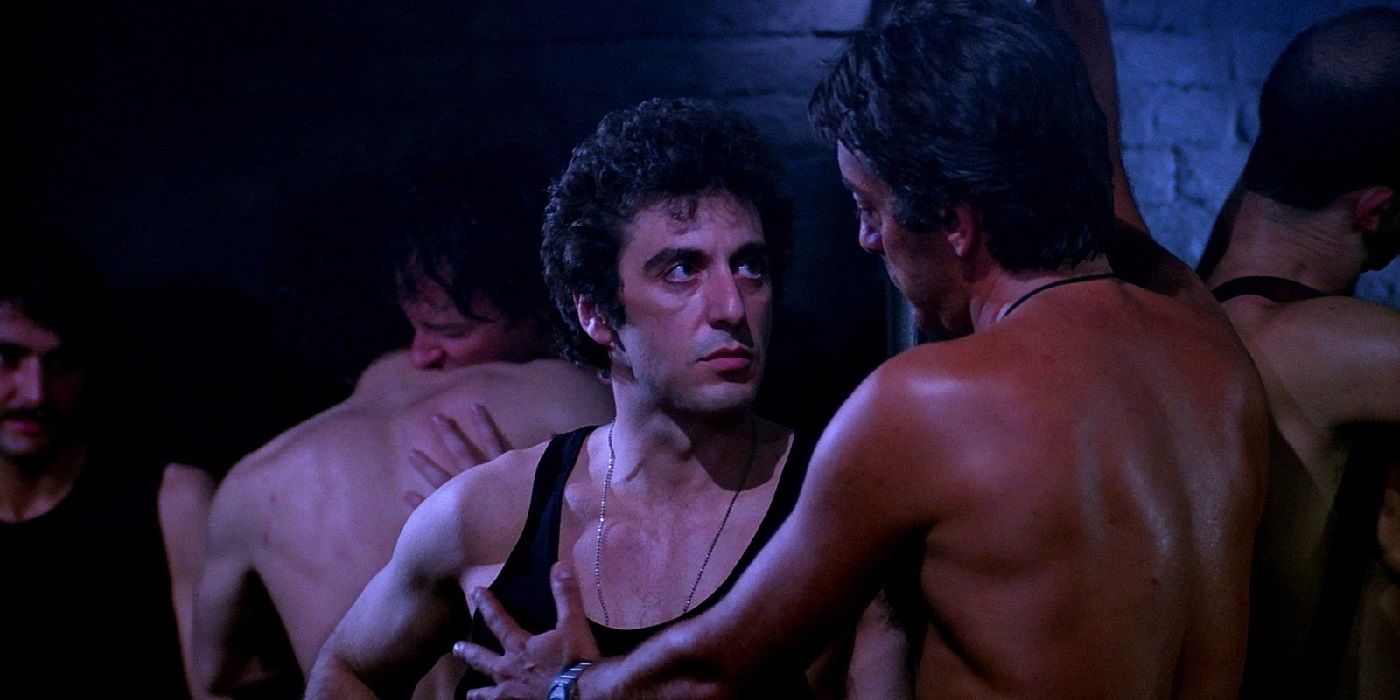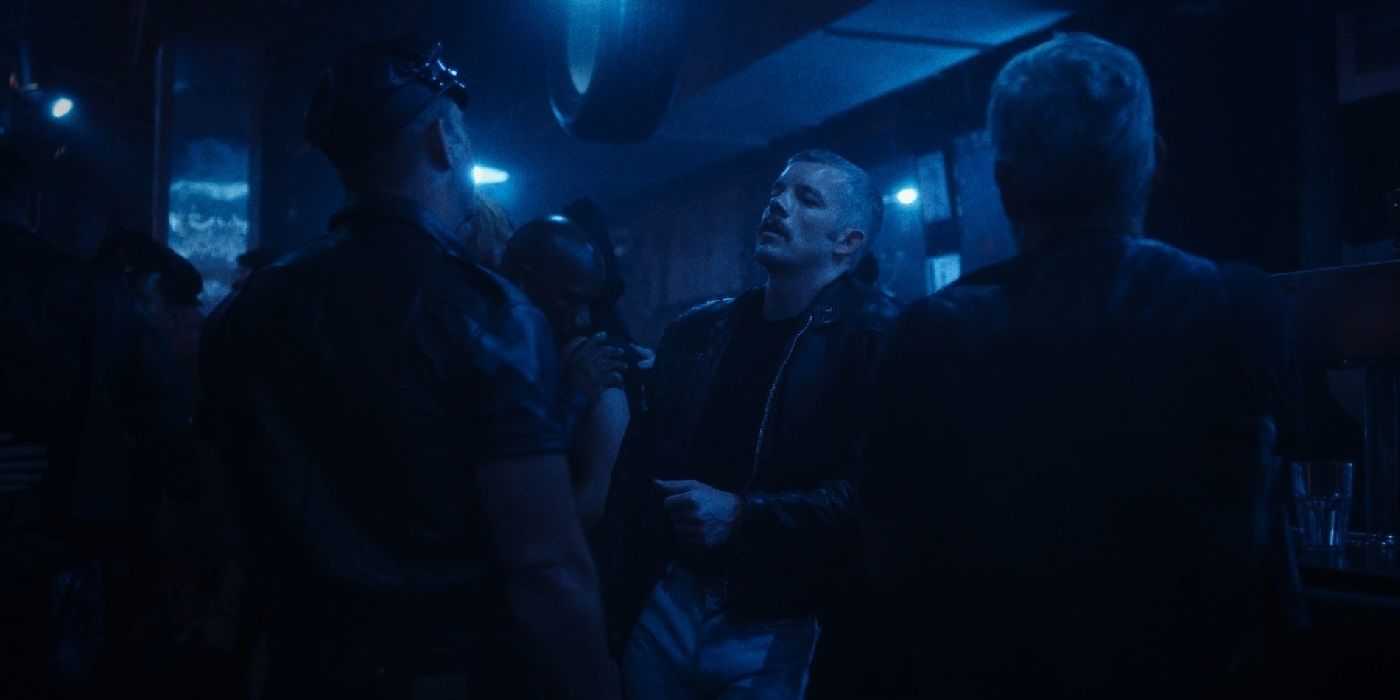
The eleventh season, American Horror Story: NYC, uses a controversial 1980s film as its starting point: William Friedkin’s Cruising. In this case, the film about a police detective searching for a serial killer in the city’s underground BDSM scene bears a close similarity to the first two episodes. The film’s questionable representation remains a heated subject, which AHS: NYC gets around by not only fundamentally altering the perspective, but by highlighting the real-world protesters who spoke out against it at the time.
Cruising Found Controversy Long Before AHS

Cruising stars Al Pacino as a New York cop who goes undercover to catch a killer who uses leather bars and similar locations as hunting grounds. In the process, he’s forced to confront both systemic homophobia and his own darker proclivities. The film opened to mixed critical responses and bombed at the box office. The late Roger Ebert’s review was typical for the time: praising Friedkin’s direction and Pacino’s performance, but criticizing the film’s timidity with its subject matter. The controversy didn’t end there.
In his memoir, The Friedkin Connection, the director reveals how he and Pacino clashed over the film’s direction, which was watered down in the face of both traditional censorship concerns, and withering criticism from the gay community at the time. According to an article from the University of Wisconsin, and elsewhere, protesters dogged the film’s production from the start. Specifically, there were concerns over homophobic content at a time when the LGBTQIA community was making huge strides forward in visibility and representation. Columnist Arthur Bell, who wrote for the Village Voice and devoted a series of columns to similar real-life murders in the gay nightclub scene, condemned the production in the harshest terms. It impacted not only the film’s financial prospects, but its subsequent standing among scholars. As such, it’s difficult to talk about Cruising without including the furor surrounding it.
AHS Embraces Both the Controversy and Its Players

In truth, the film is mostly guilty of appropriation: cishet filmmakers using extreme corners of the LGBTQIA community as “colorful” backdrop for a rote (if well-crafted) serial-killer mystery. American Horror Story is on firmer ground with the show’s co-creator, Ryan Murphy, being gay, along with multiple writers and behind-the-scenes creative forces. That alone makes a world of difference. For AHS: NYC, the first two episodes focus on a serial killer stalking NYC gay bars in 1981, but it starts from the perspective of the community itself rather than outsiders. All the main characters are LGBTQIA, and the killer comes amid the systemic prejudice they have to deal with every day. This contrasts with Cruising’s variation of the “straight savior” narrative, which focused almost entirely on Pacino’s cishet detective rather than the society he’s infiltrating.
The new season also includes a version of the film’s real-world controversy in its narrative. Its protagonists include reporter Gino Berelli, who works for a fictional gay newspaper called The Native. He’s an obvious stand-in for Bell: growing frustrated by the police’s non-response to the threat, and eventually committing to taking action himself. AHS also gives him a partner, Patrick Read: a closeted NYPD detective trying to get his bosses to respond to the killer without being outed. Finally, and perhaps most ominously, the show points to an even greater monster on the horizon. The AIDS epidemic is the subject of premonitions of doom, for which the people in charge evince the same indifference as they do to the serial killer.
While the change in perspective doesn’t quite defuse the controversy as AHS has never been shy about reveling in the lurid side of its content, it does allow the show to tackle its subject matter in a better light. As the season continues, and its chosen rabbit hole grows darker and more outrageous as it invariably does, it appears ready to take inspiration from Cruising without succumbing to its prejudices. Representation matters, which is something AHS: NYC seems to understand far better than its inspiration.
New episodes of American Horror Story air every Wednesday on FX, with next-day streaming on Hulu.



